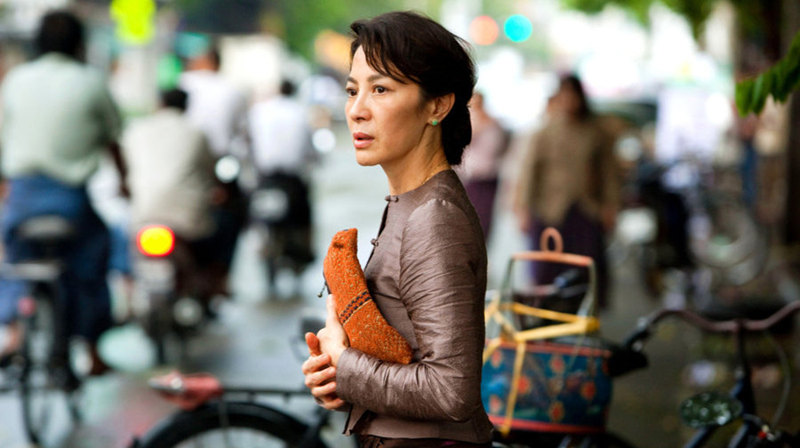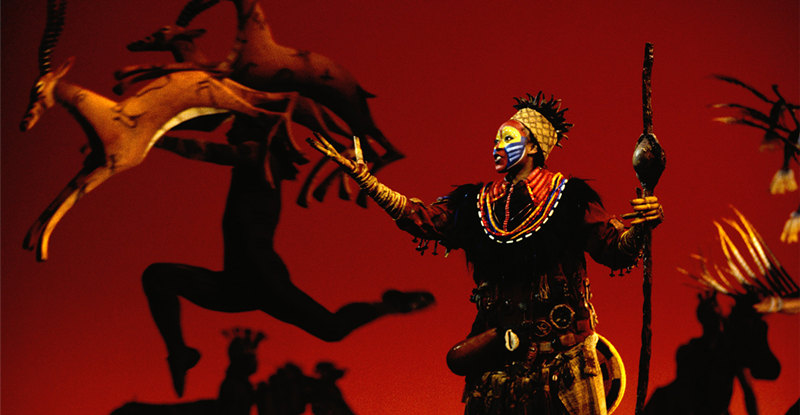“Bring me my Bow of burning gold:
Bring me my Arrows of desire:
Bring me my Spear: O clouds unfold!
Bring me my Chariot of Fire.
I will not cease from Mental Fight,
Nor shall my Sword sleep in my hand
Till we have built Jerusalem
In England’s green and pleasant land.”
— William Blake
I remember an incident concerning this film that occurred to me several years after its theatrical run, when it first showed up on tape. I was in a video shop when a woman went to the counter and asked the proprietor if he recommended “Chariots of Fire.” The man replied, no, not really; it was “just about a bunch of guys running.” I wanted to march up to the counter and say, “Don’t you realize that ‘Chariots of Fire’ won the Oscar for Best Picture in 1981, and Best Screenplay and Best Music and Best Costumes? Of course, he recommends it!” But I bit my lip and said nothing. I suppose the fact that today, over three decades later, Warner Bros. have reissued it in a deluxe, high-definition Blu-ray Book edition is vindication enough.
On the face of it, “Chariots of Fire” would appear to be the simple, real-life account of two runners representing Great Britain in the 1924 Paris Olympics. But it’s much more than that. It’s an inspirational story of moral decisions, personal integrity, and forthright courage.
The two runners are Harold Abrahams (Ben Cross) and Eric Liddell (Ian Charleson), both of whom came to the sport carrying a ton of psychological baggage. Abrahams was a Jew, the son of a prosperous London financier. But when we first meet him as a freshman entering Cambridge, we see that he feels the strain of prejudice against him, against all Jews. He has, as he says, “felt the cold reluctance in a handshake.” It has made him hard, somewhat stern, and not a little arrogant and pugnacious. His running is his way of fighting back, making his mark in an unkind world. Running is his weapon against being Jewish. He’s going to “run them off their feet,” as he puts it. When he first meets his college roommate and fellow runner, Aubrey Montegue (Nicholas Farrell), young Aubrey says to him, “I can’t stand getting beaten. How about you?” Abrahams replies, “I don’t know. I’ve never lost.”
Abrahams challenges the “College Dash” on one of his first days at school, a race around the perimeter of the commons before the clock strikes the hour. He is the first to do so in 700 years. Two of the college Masters (Sir John Gielgud and Lindsay Anderson) are uncertain about Abrahams, but they love his running. Is there “a swifter man in the Kingdom?” the Master of Trinity asks.
The answer is yes, there is: Eric Liddell, a devout Scottish Christian. Known as “The Flying Scot,” Liddell’s problem is whether or not to run at all, given that his family want him to go with them to do missionary work for his church in China. Liddell feels torn between running and serving his God. But he’s encouraged to “run in God’s name and let the world stand back in wonder.” Or as Liddell himself says, “I believe God made me for a purpose, but he also made me fast.” He decides to run, at least for a while. And he was the best.
Yes, Liddell was the best, and Abrahams knew it. And it almost destroyed him. Liddell is the fastest man Abrahams has ever seen, and the most determined. When Liddell beats him in their first meeting, Abrahams is ready to call it quits. “I run to win,” he tells his friend, the celebrated stage actress Sybil Gordon (Alice Krige). “If I can’t win, I won’t run!” To which she responds, “If you don’t run, you can’t win.” Hiring a trainer, Sam Mussabini (Ian Holm), helps him restore his lost confidence.
To add a contemporary relevance to the story, the movie unfolds in flashback from the occasion of Abrahams’ funeral in 1978. The flashback story takes place over a period of about four-and-a-half years, starting in 1919 and culminating with the 1924 Olympics. Abrahams, Liddell, Montegue, and Lord Andrew Lindsay (Nigel Havers) are among the movie’s main characters representing Great Britain’s track team. They must face the best in the world, including America’s vaunted duo of Charles Paddock and Jackson Scholz (Dennis Christopher and Brad Davis), the reputed “fastest men in the world.” And it is at the Olympics that Liddell must face the greatest challenge of his life, to run or not to run on a Sunday.
Just about everything in the film seems right. Director Hugh Hudson (“Greystoke, the Legend of Tarzan,” “Revolution,” “My Life So Far,” “I Dreamed of Africa”) turns a relatively small story into a rhapsodic epic of spiritual and heroic dimensions, a poetic evocation of another place, another time, and the personal struggles of two young men that become universal struggles for us all. Combine Hudson’s deft directorial touch with David Watkin’s often ballet cinematography and Vangelis Papathanassiou’s soaring musical track, and you get a movie that totals even more than the sum of its parts. It is, as the film’s prefacing narrative tells us, a story of young men with hope in their hearts and wings on their heels. It is a remarkable film.
Video:
Warner engineers use an MPEG-4/AVC codec and a dual-layer BD50 to reproduce the film in its original theatrical ratio, 1.85:1. Although the image quality is sometimes a tad dark, the colors are generally rich and deep, with strong black levels to set them off. The picture looks fairly well defined and quite smooth most the time, too. In some scenes, apparently shot under natural lighting conditions, we find a mild veiling. There is a slight amount of grain present throughout the film, just enough to give the image some character and life, but the grain is only really noticeable in the closing credits. Mostly, the PQ is bright and clear.
Audio:
The lossless DTS-HD Master Audio 5.1 does a reasonably good job reproducing the film’s soundtrack. The front channel separation is wide, and the overall tonal balance is clean, linear, and lifelike. There isn’t a lot of surround information, which we might expect; yet this is a minor annoyance, given the movie’s award-winning music by Vangelis and its liberal sprinkling of tunes by Gilbert and Sullivan. But as little surround information as there is, there should still be enough warm musical ambience in the rear and side channels to satisfy most listeners. Moreover, the sound opens up widest when it’s needed most, at the very end of the film, where it’s quite impressive.
Extras:
There’s a good assortment of extras on the Blu-ray disc, the first of which is a commentary track by director Hugh Hudson, who makes straightforward notations on all the major characters and actions. It is not the most humorous or galvanizing commentary I’ve ever heard, but Hudson is informative and stimulating in his observations and goes out of his way to provide background on the motivation for almost every scene.
Next, we get eight deleted scenes, totaling about thirteen minutes, and a series of featurettes. The first and most important of the featurettes is “Wings on Their Heels: The Making of Chariots of Fire.” It’s twenty-seven minutes long and contains comments by director Hugh Hudson, producer David Puttnam, writer Colin Welland, director of photographer David Watkin, and various cast members including Ben Cross, Nigel Havers, Alice Krige, and Dennis Christopher. Welland tells us he researched the 1924 Olympics extensively and interviewed everybody from the time who was still alive. But, unfortunately, Harold Abrahams had died just two weeks before the writer started working on the film. Turns out, too, that after seeing photographs of the real people involved in the story, you’ll appreciate that many of the film’s actors bear striking resemblances to the characters they played. The next featurette is “Chariots of Fire: A Reunion,” about eighteen minutes long. This one is more or less a continuation of the first one, including comments from most of the same people, who this time sit around and discuss their memories of the filmmaking together. Although actor Nicholas Farrell joins them, I missed Ian Holm from both assemblages.
Continuing the featurettes, we get “Paris 1924,” twenty-seven minutes on the Olympic event; “David Puttnam,” twenty-five minutes on the producer; “Hugh Hudson,” fourteen minutes on the director; screen tests of Ben Cross, Patricia Hodge, and Ian Charleson; “Sprint Around the Quad,” two minutes; and “Famous Opening Shot,” one minute.
In addition, you’ll find thirty-six scene selections; a widescreen theatrical trailer; English and French spoken languages; French subtitles; and English captions for the hearing impaired.
Finally, the package includes a soundtrack sampler CD containing four Vangelis musical selections from the film, the two discs fastened to the front and back inside covers of a hardbound Blu-ray Book with forty pages of text and pictures.
Parting Thoughts:
“…just about a bunch of guys running,” indeed! “Chariots of Fire” concerns itself with moral and spiritual courage, and the differences in loyalty to oneself, to one’s country, and to one’s God. It’s an uplifting motion picture that does everything a good picture should do: It moves us. It challenges our mind. And it touches our heart.
“For when the One Great Scorer comes to write against your name,
He marks–not that you won or lost–
But how you played the game.” –Grantland Rice


